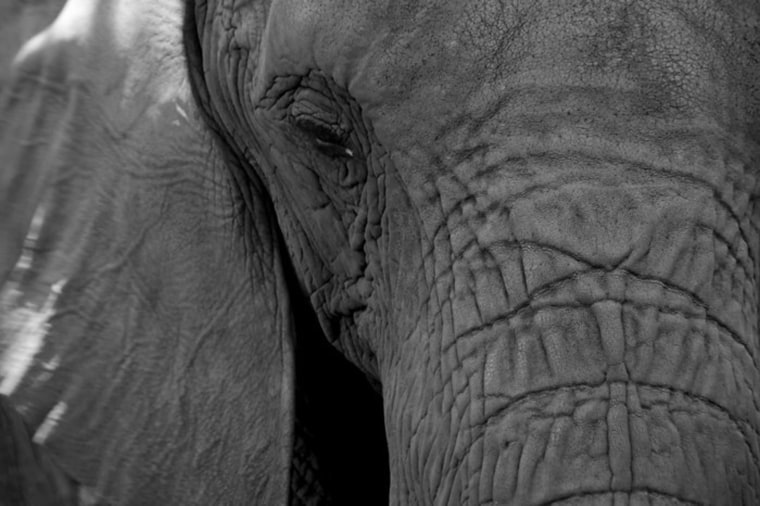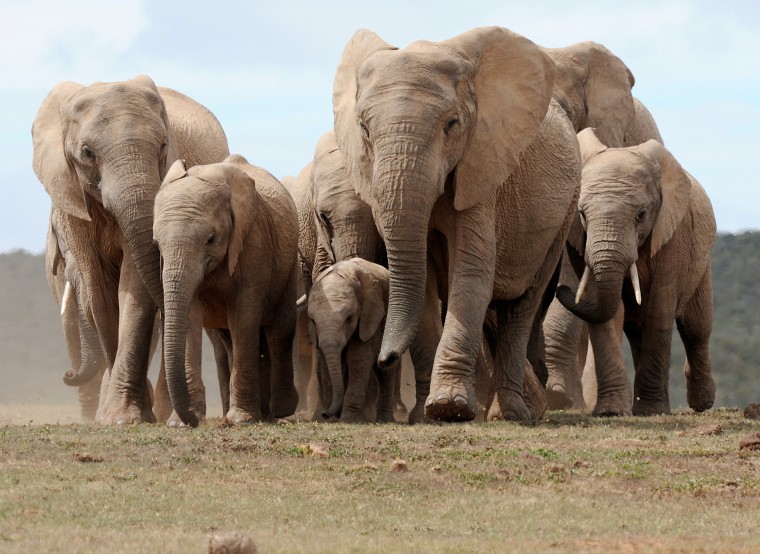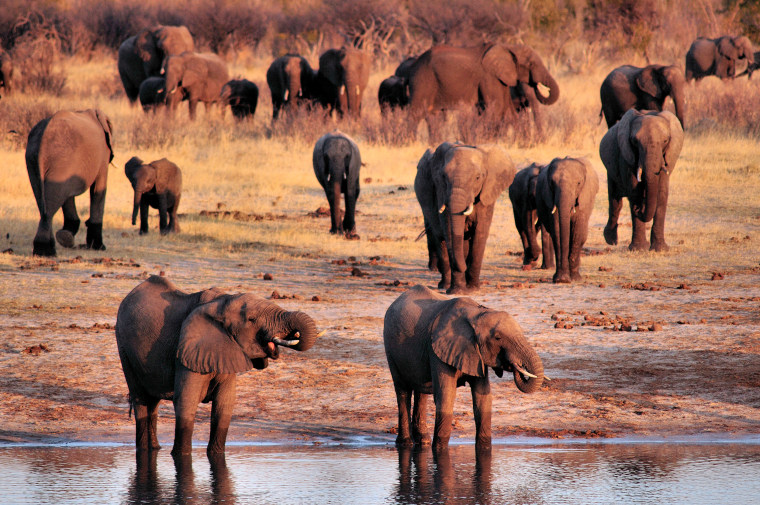Anyone who feels proud for pulling an all-nighter has nothing on the African Elephant.
A study released Wednesday of two matriarchal elephants in Botswana's Chobe National Park revealed the lumbering creatures only slept for two hours a day — apparently the least of any mammals.
Remarkably, these insomniac elephants traveled nearly 19 miles in 10 hours without rest and stayed up for a record 46 hours straight, according to the study conducted by the UCLA Center for Sleep Research and the nonprofit research group Elephants Without Borders.

Scientists have noted that the elephants' non-sleeping abilities are a new record for a mammal's sleeping pattern and compared it to captive elephants' sleeping patterns of five to six hours a day.
"The elephants were studied for continuous 35 day periods [from a distance]," Jerry Siegel, director of the Center for Sleep Research, told NBC News. "Elephants move with their herd and move very frequently, so animals sleeping a lot would be left behind."
The study noted that both the matriarchal elephants didn't sleep in the same location daily and would search for locations with lush vegetation, such as the woodlands and open savanna areas, without crossing paths with another elephant herd.
Related: The Surprising Reason This Scientist Wants to Resurrect the Woolly Mammoth
Researchers used GPS trackers and “actiwatch implants” — the equivalent of animal Fitbits — to monitor both elephants' activity levels and found that both matriarchs could sleep standing for two days straight, napped in several short bouts of about 20 minutes over the course of a night, and kept traveling to avoid poachers, predators and other disturbances.
"I have previously shown in 2005 that herbivores sleep less than omnivores and carnivores. Elephants are eating machines. If they were not eating all the time, they wouldn't be the massive animals they are," Siegel said.
However, these floppy-eared giants are following — and defying — a known rule of biology that the bigger an animal is, the less sleep it needs. According to the study, the elephants' sleeping times are fewer than other big animal's sleeping patterns like gray whales' nine hours per day and giraffes' 4.6 hours per day.
UCLA researcher Oleg Lyamin told NBC News that it's hard to fully comprehend sleep patterns because conclusions are drawn from studies in laboratories as well as observing sleep patterns of animals outside their natural habitats. These animals are usually deprived of complex interactions with the environment.

When it comes to the known connection between rapid eye movement (REM) sleep influencing memory consolidation, the study and Lyamin both indicated that elephants and wild animals were the big exception to this rule.
Elephants, dolphins, seals and many other wild animals can sacrifice proper shut-eye for days without their performance and cognitive functions, such as memory, being affected or disoriented. However, humans and confined animals show the opposite results and become impaired when regular sleep is not practiced.
But other researchers believe the size of an elephant's family group and the responsibilities of the herd's matriarch could also influence its sleep duration.
"Perhaps elephants in larger family groups sleep longer due to increased protection of having other elephants aware of their surroundings," said Preston Foerder, assistant professor of psychology at the University of Tennessee at Chattanooga. "It's also possible that they take turns sleeping. Elephants are in a fission-fusion social group, meaning that groups tend to split up and come back together."
Josh Plotnik, CEO of Think Elephants International, told NBC News that matriarchs are responsible for overseeing all of the herd's decisions about where to go for food and how to avoid predators, and could be sleeping less because the amount of responsibility imposed on them.
Researchers in the study noted that a lot of ground on the subject remains uncovered, especially since male elephants and calves were not observed and an elephant's skull makes it difficult for implanting tracking devices.
